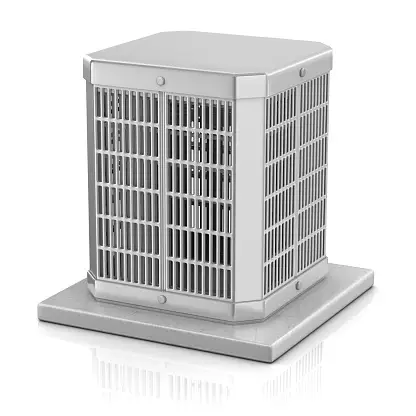A groundbreaking collaboration is emerging among nine trailblazing US states, all committed to driving the adoption of electric heat pumps with the ultimate goal of ousting fossil fuels from heating and cooling systems across thousands of buildings. This concerted effort heralds a new chapter in the decarbonization narrative, one that, despite the absence of the remaining 41 states, serves as a beacon for future nationwide action. Stakeholders entrenched in the realm of fossil energy watch warily, even as enthusiastic HVAC industry leaders gear up to embrace this transformative shift.
Confronting Carbon Emissions in the Built Environment
The widespread assumption that buildings play a minor role in the emission of greenhouse gases is mistaken. In reality, commercial and residential structures are responsible for a significant 13% of the nation’s greenhouse gas emissions — a figure overshadowed by the attention typically given to power plants and automobiles. Buildings’ HVAC systems, operating quietly behind the scenes, have largely been spared from the criticism that is more frequently directed at more visible polluters like aircraft, which contribute a mere 3% of emissions. The introduction of electric heat pumps is poised to revolutionize this sector, providing an effective solution to the significant challenge of weaning buildings off oil and gas.
Previously shunned due to performance issues in colder climates, recent technological advances in heat pumps have unlocked their potential for widespread use, even in areas previously thought unsuitable for their deployment.
The HVAC Industry Turns a New Leaf with Heat Pumps
Within the HVAC industry, there is growing excitement about the prospects that electric heat pumps provide. Not confined to new building installations, the retrofitting of existing structures with heat pumps presents a ripe economic opportunity. The passing of the 2022 Inflation Reduction Act further bolsters this sector by including tax incentives that promote the uptake of these energy-efficient appliances. Firms such as Mitsubishi have vocalized the act’s significance in the push to eradicate fossil fuels from buildings.
The U.S. Department of Energy has also been proactive in promoting heat pumps through its “Residential Cold Climate Heat Pump Technology Challenge.” This initiative has drawn industry giants into a collective effort to enhance heat pump systems for cooler regions, asserting that the technology, capable of withstanding temperatures as low as 5 degrees Fahrenheit, can save households significant sums on energy bills while mitigating carbon emissions.
A Powerful Coalition for Heat Pump Adoption
Nine states — California, Colorado, Maine, Maryland, Massachusetts, New Jersey, New York, Oregon, and Rhode Island — have bound themselves to an ambitious pact. This accord calls for heat pumps to account for at least 65% of residential HVAC and water heating shipments by 2030, creating a pathway to reach a 90% share by 2040. Amidst this agreement, measures have been pledged, emphasizing the integration of heat pumps into existing state-owned buildings and laying the groundwork for shared data, strategies, and state-level action plans.
The Overarching Benefits Beyond Carbon Emissions
The Northeast States for Coordinated Air Use Management (NESCAUM) has been instrumental in orchestrating this collaborative endeavor, linking it back to its historical roots in combating air pollution from power plants. By addressing emissions from heating equipment, the coalition acknowledges the environmental and health detriments of pollutants such as nitrogen oxides and fine particulate matter, which exacerbate various health issues.
Industry Support for Progressive Heat Pump Policy
The NGO Ceres has rallied voices from across the industry, including corporate giants and startups alike, to advocate for state-level commitment towards building decarbonization and the acceleration of energy-saving technologies. Over 20 companies have now voiced their support for heat pump adoption, signalling a readiness within the HVAC sector to take on the resistance from the fossil fuel industry and pave the way for a more sustainable future with heat pumps at the forefront.

























